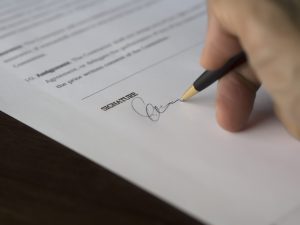 The current Covid-19 pandemic has placed an eviction moratorium throughout the state, and altered other tenant-landlord contract agreements. Learn more about your lease, rights, and expectations as a renter during this challenging period.
The current Covid-19 pandemic has placed an eviction moratorium throughout the state, and altered other tenant-landlord contract agreements. Learn more about your lease, rights, and expectations as a renter during this challenging period.
You still have to pay rent. You signed a rental agreement and are obligated to pay each month, regardless of the current pandemic. Pay your rent like you normally do and get a receipt. If you can’t make your rent payment, talk to your landlord right away. Tell your landlord why you can’t make rent and keep documentation you have about why you can’t make rent (such as termination or reduction of hours paperwork).
What if I can’t pay rent? Even if you can’t make ends meet to pay rent, your landlord legally can’t end your lease or file an eviction case against you right now. In addition, the sheriff cannot come and remove you from your home. If your landlord insists, you can call Legal Aid right away and address your specific questions about your situation.
Should I pay rent instead of utilities? If possible, pay all bills as normal. Your utility bills, like all payments and services, are due during a routine billing cycle. However, Xcel Energy, Centerpoint, along with some cities and other utility providers are stopping utility shutoffs during COVID-19. There is also a “cold weather rule” From November until April 15. If you can’t pay your whole gas or electric bill, a utility company can’t shut off your service if you make and keep a payment plan. It is illegal for your landlord to shut off your water, electricity, or gas on their own.
My lease ended and my landlord is increasing rent. Is that legal? Possibly. It depends on your lease, how much the rent is increasing, and other contributing factors. If you have a written lease, read the agreement and see what it says about rent increases. The lease might say when the landlord can increase the rent, or it might claim that your rent can’t go up for some set amount of time. If you have a month-to-month lease, the landlord has to give you at least one full month warning, in writing, before the rent can go up. If you have any questions, it is best to consult a lawyer.
I’m worried about Covid-19 in my building. Can I break my lease due to the pandemic? Maybe. Your lease is still a valid legal contract, and you still owe rent. However, talk to your landlord to see if they will agree to let you leave early. If they agree, get the agreement in writing. If you have a disability or health condition that makes your current home unsafe to be in, ask for a reasonable accommodation.
Have more specific questions? Contact a lawyer or learn more about Renters Rights during a pandemic here. Contact Legal Aid for any specific questions about your housing situation.



